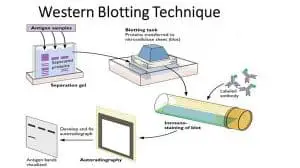

thesis on RNA tumor viruses (now called retroviruses) under the guidance of William Mitchell. He then went to Vanderbilt University to work toward a Ph.D. He then got a master’s degree in bio-organic chemistry at the University of Central Missouri, a location chosen partly because his father was teaching there. With mentorship from his organic chemistry professor, Manfred Reinecke, Burnette graduated with two bachelor’s degrees, one in biology and the other in chemistry. I worked 48 hours a week as a surgical scrub” to make ends meet, recalls Burnette. “But my then-girlfriend, and now wife, convinced me to change course.” Aware of Burnette’s interest in science, she told Burnette she would marry him only if he went into science.īurnette heeded her. “I went to college to study theater and ballet,” he says. The award led to a theater scholarship from Texas Christian University. Burnette says he became “a starry-eyed kid who wanted to be an actor.”Īs a senior in a Texas high school, Burnette acted in the lead role of King Creon in a production of Jean Anouilh’s “ Antigone,” which won him and his school theater awards from the state. He was very much interested in science, but, in his junior year of high school, his mother encouraged him to take speech and drama classes after he got injured during football spring training. Burnette wanted to be a military pilot like his father, who was a bomber pilot during World War II and a fighter pilot during the Korean war, but his bad eyesight put an end to that dream. and Japan while his father served in the U.S.

Early yearsīorn in 1944 in New York state, Burnette traveled with his family all over the U.S. Army officer, a field medic and an infectious diseases expert. At the same time, Burnette served his country for 35 years, in both reserve and active duty, as a U.S. In the early 1980s, he went to work for a then-small biotechnology company. Photos courtesy of Burnette.īurnette’s story is an unusual one: After a quick dip into acting school after high school, he went through the academic training mill. Army after serving 35 years in various positions. Neal Burnette retired in 2005 as a colonel in the U.S. Because Burnette didn’t bestow his name on the blot, it’s likely that the current generation of investigators don’t know he was involved in developing the technique that is now ubiquitous in molecular biology and biochemistry research laboratories and used as a clinical diagnostic for HIV-AIDS. Eventually the journal agreed to publish the paper, which now has been cited more than 6,000 times. The paper initially was rejected by the journal Analytical Biochemistry, but it went viral among molecular biologists as a preprint. Neal Burnette published a paper that described a technique called Western blotting (1).


 0 kommentar(er)
0 kommentar(er)
